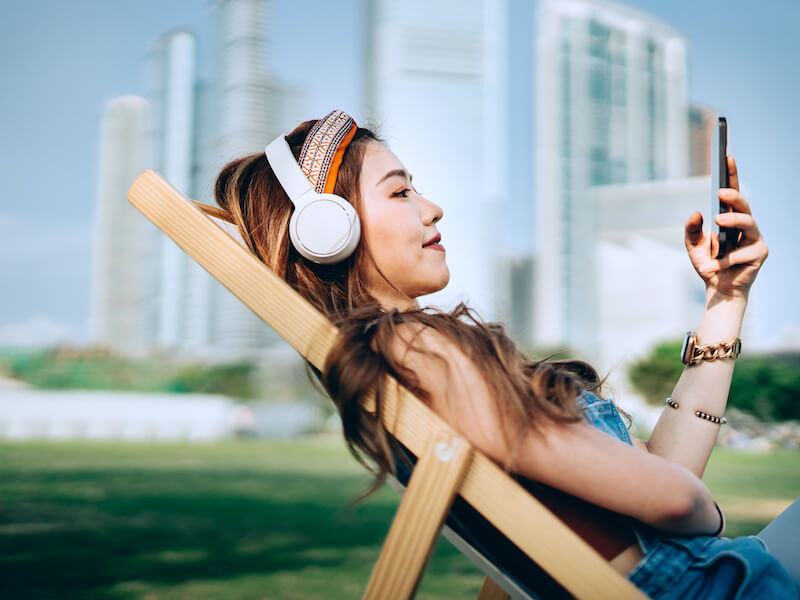
Music is an essential part of Aiden’s life. He listens to Spotify while working, switches to Pandora while jogging, and he has a playlist for everything: gaming, gym time, cooking, and everything else. His entire life has a soundtrack and it’s playing on his headphones. But the very thing that Aiden loves, the loud, immersive music, may be causing irreversible damage to his hearing.
As far as your ears are concerned, there are safe ways to listen to music and unsafe ways to listen to music. However, the majority of us pick the more dangerous listening choice.
How can hearing loss be the result of listening to music?
Your ability to hear can be compromised over time by exposure to loud noise. Normally, we think of aging as the main cause of hearing loss, but more and more research reveals that it’s really the accumulation of noise-related damage that is the issue here and not anything intrinsic to the aging process.
Younger ears that are still developing are, as it turns out, more susceptible to noise-induced damage. And yet, the long-term damage from high volume is more likely to be disregarded by young adults. So because of widespread high volume headphone use, there has become an epidemic of hearing loss in younger individuals.
Is there a safe way to enjoy music?
It’s obviously hazardous to listen to music at max volume. But there is a safer way to listen to your tunes, and it typically involves turning down the volume. Here are a couple of general guidelines:
- For adults: Keep the volume at less than 80dB and for no more than 40 hours per week..
- For teens and young children: You can still listen for 40 hours, but keep the volume level below 75dB.
About five hours and forty minutes a day will be about forty hours a week. Though that may seem like a long time, it can seem to pass rather quickly. But we’re trained to monitor time our entire lives so the majority of us are pretty good at it.
The more challenging part is monitoring your volume. Volume isn’t measured in decibels on the majority of smart devices such as TVs, computers, and smartphones. Each device has its own arbitrary scale. It might be 1-100. Or it might be 1-10. You might not have any idea how close to max volume you are or even what max volume on your device is.
How can you listen to music while keeping track of your volume?
It’s not very easy to know how loud 80 decibels is, but luckily there are a few non-intrusive ways to tell how loud the volume is. It’s even harder to understand the difference between 80 and 75dB.
That’s why it’s greatly suggested you utilize one of numerous free noise monitoring apps. These apps, generally available for both iPhone and Android devices, will give you real-time readouts on the noises surrounding you. In this way, you can make real-time alterations while monitoring your real dB level. Your smartphone will, with the correct settings, let you know when the volume goes too high.
The volume of a garbage disposal
Your garbage disposal or dishwasher is usually about 80 decibels. That’s not too loud. It’s an important observation because 80dB is about as much noise as your ears can take without damage.
So pay close attention and try to stay away from noise above this volume. And minimize your exposure if you do listen to music over 80dB. Maybe listen to your favorite song at full volume instead of the whole album.
Over time, loud listening will cause hearing problems. You can develop tinnitus and hearing loss. The more you can be cognizant of when your ears are going into the danger zone, the more informed your decision-making will be. And ideally, those decisions lean towards safer listening.
Still have questions about keeping your ears safe? Contact us to go over more options.
